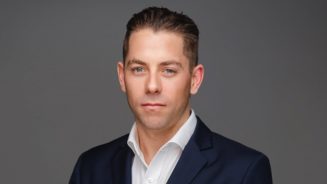A spokesman for the Geneva prosecutor’s office confirmed to Reuters that it has opened an investigation following a criminal complaint by the law firm.
The spokesman declined to provide further details at this stage.
Denies wrongdoing
Citing sources close to events, Le Temps said the suspect, who has denied any wrongdoing, has been accused of data theft, unauthorised access, and breach of trust.
The paper added that there is no evidence that the detained man was responsible for the leak of more than 11 million documents from the Panamanian law firm in April, described at the time as “the biggest ever blow to the offshore world”.
“More than just a cog in the machine of 'wealth management', Mossack Fonseca used its influence to write and bend laws worldwide to favour the interests of criminals over a period of decades."
Mossack Fonseca’s office in Geneva is understood to have been searched and computer equipment seized. Checks are reportedly underway to see if the suspect had stolen data and, if so, how much and when.
John Doe
German newspaper Süddeutsche Zeitung was contacted by an anonymous source, calling himself ‘John Doe’, more than a year before the Panama Papers were first reported, offering the newspaper data belonging to Mossack Fonseca.
In cooperation with the International Consortium of Investigative Journalists (ICIJ), Süddeutsche Zeitung worked with more than 100 media organisations from over 80 countries to analyse the data.
After some of the furore of the release died down, John Doe sent his manifesto to the German newspaper, explaining his motivation for leaking the data.
He wrote: “More than just a cog in the machine of ‘wealth management’, Mossack Fonseca used its influence to write and bend laws worldwide to favour the interests of criminals over a period of decades.
“Ramón Fonseca and Jürgen Mossack would have us believe that their firm’s shell companies, sometimes called ‘special purpose vehicles’, are just like cars. But used car salesmen don’t write laws. And the only ‘special purpose’ of the vehicles they produced was too often fraud, on a grand scale.
“Shell companies are often associated with the crime of tax evasion, but the Panama Papers show beyond a shadow of a doubt that although shell companies are not illegal by definition, they are used to carry out a wide array of serious crimes that go beyond evading taxes.
“I decided to expose Mossack Fonseca because I thought its founders, employees and clients should have to answer for their roles in these crimes, only some of which have come to light thus far. It will take years, possibly decades, for the full extent of the firm’s sordid acts to become known.”
To read John Doe’s full statement, click here.




